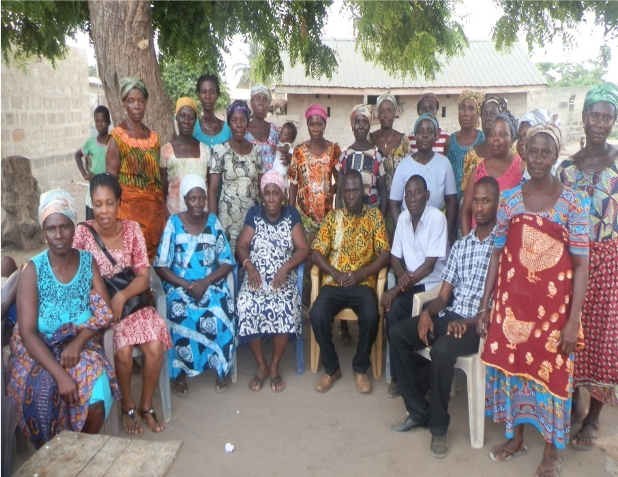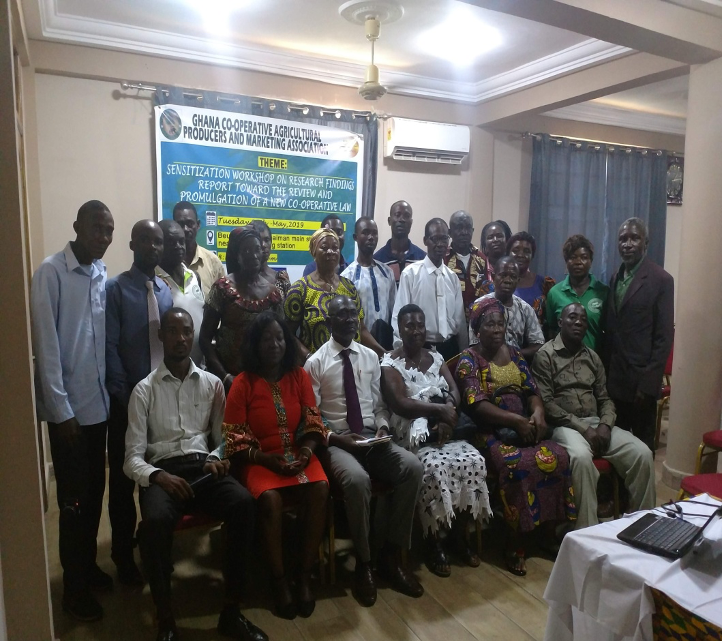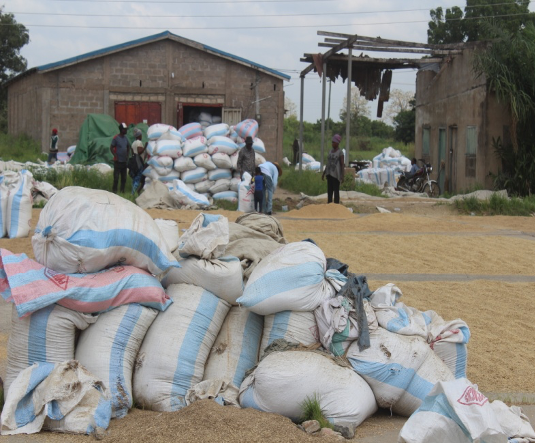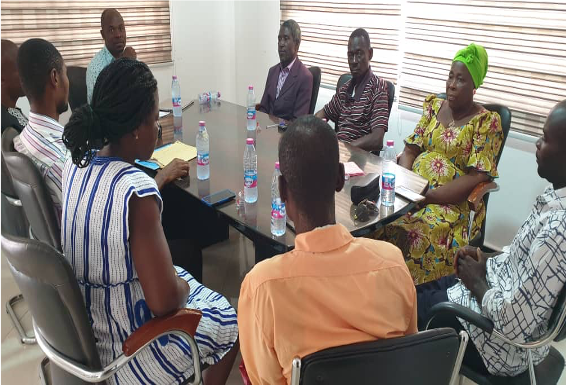Ghana Cooperative Agricultural Producers and Marketing Association (AGRIC COOP-GHANA)
The year 2019 was of mix exaction in the history of cooperatives in Ghana especially in the lives of agricultural cooperatives which successive government has paid less attention to, especially actors in the crops, cereals, fruits, vegetables meats and fisheries sub-sector. Ghana with a beautiful historical background of cooperative development is rising again to pick up the mantle of success in country. The year 2019 was a year of action for the Agricoops, where member of the Agricoops were determined to unravel the mystery behind the under-performance of agricultural cooperatives in Ghana.
Member Engagement
 Member cooperative society of the Agricoops has a role to play beyond their basic economic activities. In order to gather primary data and information on the activities of cooperative societies to enable the researcher to conduct thorough analysis of the legal framework governing the operations of cooperatives in Ghana. We organized for a two-days sensitization workshops which were held in Ashaiman in the Greater-Accra region and Sunyani in the Bono region respectively to disseminate the research finding to various stake-holders and obtain their inputs.
Member cooperative society of the Agricoops has a role to play beyond their basic economic activities. In order to gather primary data and information on the activities of cooperative societies to enable the researcher to conduct thorough analysis of the legal framework governing the operations of cooperatives in Ghana. We organized for a two-days sensitization workshops which were held in Ashaiman in the Greater-Accra region and Sunyani in the Bono region respectively to disseminate the research finding to various stake-holders and obtain their inputs.
Promoting the Cooperative Identity
In a free market economy where all kind of businesses are competing to maintain their brands and identity, the Agricoops as a social and democratic enterprise spear- headed the creation of the awareness of cooperative Identity and protecting the image of agricultural cooperatives through sensitization, public education and media engagement.
Cooperative capital
Business cannot survive without capital and cooperative are not exception, whilst they have the ability to generate income, access loans and donor support, the Agricoops having the potential to be financially viable and independent, over the years. Cooperative capital generally comes from the share capitals and profits made from the sales of produce, however lack of access to ready market is a major threat to agricultural cooperative development in Ghana. In 2019 government introduction of the “Planting for Food and Jobs” program resulted into increased production. Currently, more than 50,000 tons of locally produce rice, worth over Ghc3,000,000 lacking market due to the importation of foreign rice from Asia.
Cooperative Legal Framework
 A research was conducted to bring to live the legislative challenges confronting cooperative societies and to address the gaps facing Cooperative bodies in Ghana in engaging in strategic dialogues with the various stallholders to review the current cooperative law governing cooperatives in Ghana and to promulgate a new law. Following the advocacy training program organized by the Agricoops from November,21St to 24th, as a directive by the Brussels council of the EU in recognizing cooperatives as a strategic partner its development agenda, a consulting firm, JMK Consulting LLC was contracted to conduct an in-depth and thorough research analysis in the current cooperatives law of Ghana and the cause of parliament’s failure to pass the 2004 cooperative bill.
A research was conducted to bring to live the legislative challenges confronting cooperative societies and to address the gaps facing Cooperative bodies in Ghana in engaging in strategic dialogues with the various stallholders to review the current cooperative law governing cooperatives in Ghana and to promulgate a new law. Following the advocacy training program organized by the Agricoops from November,21St to 24th, as a directive by the Brussels council of the EU in recognizing cooperatives as a strategic partner its development agenda, a consulting firm, JMK Consulting LLC was contracted to conduct an in-depth and thorough research analysis in the current cooperatives law of Ghana and the cause of parliament’s failure to pass the 2004 cooperative bill.
Executive members of the Agricoops supported JMK Consulting LLC to conduct the research to come out with the final report to engage the various stalk holds to come out with a policy document to engage the various stalk holders.
